
George Leake was the third Premier of Western Australia, serving from May to November 1901 and then again from December 1901 to his death.
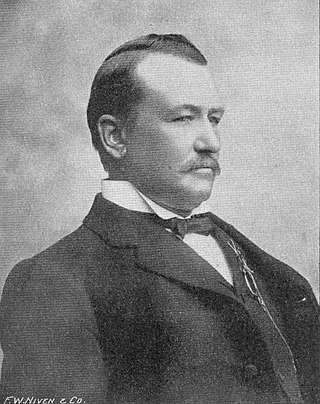
Alfred Edward Morgans was the fourth Premier of Western Australia, serving for just over a month, from 21 November to 23 December 1901.
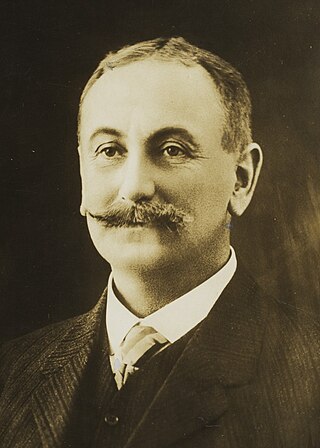
Frank Wilson, was the ninth Premier of Western Australia, serving on two separate occasions – from 1910 to 1911 and then again from 1916 to 1917.
The Electoral district of Brown Hill-Ivanhoe was a Legislative Assembly electorate in the state of Western Australia. It covered part of the Goldfields city of Boulder, near Kalgoorlie, and neighbouring mining areas. It was created at the 1911 redistribution out of the former seats of Brown Hill and Ivanhoe, and was first contested at the 1911 election. It was abolished in the 1948 redistribution, with its area split between the neighbouring electorates of Boulder and Hannans, taking effect from the 1950 election. The seat was a very safe one for the Labor Party.
The Morgans Ministry was the fourth ministry of the Government of Western Australia, led by Alf Morgans of the Ministerialist faction. It succeeded the First Leake Ministry on 21 November 1901, and was followed by the Second Leake Ministry on 23 December 1901.

The electoral district of Perth is a Legislative Assembly electorate in the state of Western Australia. Perth is named for the capital city of Western Australia whose central business district falls within its borders. It is one of the oldest electorates in Western Australia, with its first member having been elected in the inaugural 1890 elections of the Legislative Assembly.

Frederick Illingworth, was an Australian politician, who was a Member of Parliament in two Australian colonies, and a government minister in Western Australia. As a financer of land speculation in Victoria in the 1880s, he was heavily involved in the Victorian land boom.
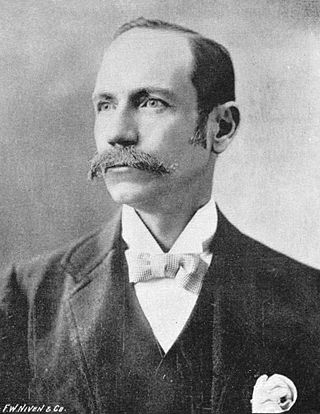
Sir Edward Horne Wittenoom KCMG was an Australian politician who served intermittently in the Legislative Council of Western Australia between 1883 and 1934, including as President of the Legislative Council from 1922 to 1926. He sat in the Legislative Council from 1883 to 1884, 1885 to 1886, 1894 to 1898, 1902 to 1906, and finally from 1910 to 1934. Wittenoom was a minister in the government of Sir John Forrest, and was also Agent-General for Western Australia between 1898 and 1901.
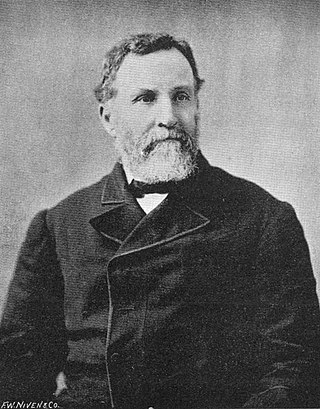
George Randell was an Australian businessman and politician. He served intermittently in the Parliament of Western Australia between 1875 and 1910, including as a minister in the government of Sir John Forrest.
This is a list of members of the Western Australian Legislative Assembly between the 1908 elections and the 1911 elections, together known as the Seventh Parliament.
This is a list of members of the Western Australian Legislative Assembly between the 1911 election and the 1914 election, together known as the Eighth Parliament. All members who sat as Liberals, apart from those returned at by-elections, were elected under the "Ministerial" designation at the 1911 election.
This is a list of members of the Western Australian Legislative Assembly between the 1904 elections and the 1905 elections, together known as the Fifth Parliament.
The following is a list of members of the Western Australian Legislative Assembly between the 1897 elections and the 1901 elections, together known as the Third Parliament.
This is a list of members of the Western Australian Legislative Assembly between the 1914 election and the 1917 election, together known as the Ninth Parliament. The re-election of Premier John Scaddan's Labor Government with a 26-24 majority in 1914 was tempered when, a year later, Labor member Joseph Gardiner's seat was declared vacant on account of his non-attendance and a Liberal was elected in his stead, and Labor became a minority government when on 18 December 1915, Edward Johnston resigned from the Labor Party and became an independent. On 27 July 1916, the Scaddan Ministry was defeated and the Liberals' Frank Wilson became the new premier.
Elections were held in the state of Western Australia on 24 April 1901 to elect 50 members to the Western Australian Legislative Assembly. It was the first election to take place since responsible government without the towering presence of Premier Sir John Forrest, who had left state politics two months earlier to enter the first Federal parliament representing the Division of Swan, and the first state parliamentary election to follow the enactment of women's suffrage in 1899.
This is a list of members of the Western Australian Legislative Council from 14 May 1900 to 12 May 1902. The chamber had 24 seats made up of eight provinces each electing three members, on a system of rotation whereby one-third of the members would retire at each biennial election. The Constitution Act Amendment Act 1899, which took effect after the 1900 election, created two new electorates—Metropolitan-Suburban Province and South Province—which had their inaugural elections on 29 August and 5 September 1900 respectively with terms expiring in 1906, 1904 and 1902.
This is a list of members of the 13th Legislative Assembly of Queensland from 1899 to 1902, as elected at the 1899 election held between 1 March 1899 and 25 March 1899.

Matthew Lewis Moss KC was a lawyer and politician who served in the Parliament of Western Australia on three separate occasions – in the Legislative Assembly from 1895 to 1897, and in the Legislative Council from 1900 to 1901 and again from 1902 to 1914. He was a minister in the governments of Alf Morgans (1901), Walter James (1902–1904), and Hector Rason (1905–1906). Moss was born in New Zealand and arrived in Western Australia in 1891. He left for England in 1914 and spent the rest of his life there, although he maintained connections with Australia, on two occasions acting as Agent-General for Western Australia.
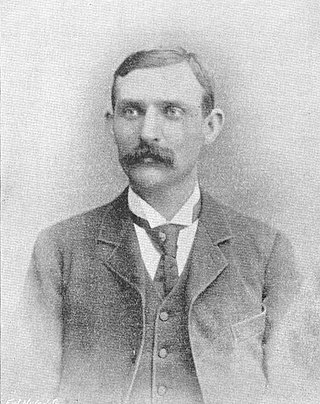
Joseph John Holmes was an Australian politician who served in both houses of the Parliament of Western Australia. A minister in both governments of George Leake, he was a member of the Legislative Assembly from 1897 to 1904 and again from 1905 to 1906, and later a member of the Legislative Council from 1914 until his death.









